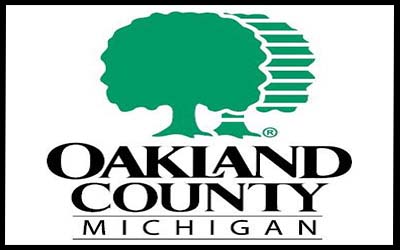
COVID-19 Update for the Week of April 27 – May 3
Oakland County Health Division COVID-19 Update on Vaccine Clinics and Doses for the Week of April 27 – May 3
Oakland County Kicks Off “One by One” Vaccine Marketing Campaign; Oakland County Providers Anticipate Administering One Millionth Dose This Week
Pontiac, Michigan – Oakland County is launching a multi-faceted marketing campaign called “One by One” to promote the safety and efficacy of COVID-19 vaccines the same week the county expects providers to administer the one millionth dose. The campaign will emphasize how One by One we get stronger, we get healthier, we get back to business, we come together as a community. The call-to-action encourages Oakland County residents to do their part to help stop the pandemic by signing up to Save Your Spot and receive their COVID-19 vaccine through OaklandCountyVaccine.com.
To promote community involvement, all individuals featured in the campaign, which will include television, radio, print, and social media ads, are residents of Oakland County. This campaign speaks to all audiences and residents throughout Oakland County with efforts focused on targeting vulnerable and hard-to-reach populations through smaller, targeted clinics that bring the vaccine into neighborhoods and communities One by one, as our residents get vaccinated, we take steps to stop this pandemic.
Meanwhile, Oakland County Health Division will conduct 12 COVID-19 vaccination clinics by appointment only the week of Tuesday, April 27 – Monday, May 3 in the following communities: Ferndale, Hazel Park, Holly, Lake Orion, Pontiac, Rochester, Royal Oak Township, Troy, Waterford, and West Bloomfield. The county also is redistributing vaccine to 39 providers this week.
The State of Michigan distributed 28,760 doses of COVID-19 vaccine to Oakland County Health Division this week, including 2,340 Pfizer doses from FEMA. The Health Division will administer the FEMA doses, provided as part of the establishment of Ford Field as a regional vaccination site, to residents who live in areas with a higher Social Vulnerability Index.
Here is the breakdown by manufacturer, excluding the FEMA doses:
MANUFACTURER
Johnson & Johnson
| 1st Dose | 0 |
| 2nd Dose | N/A |
| Total Doses | 0 |
Moderna
| 1st Dose | 5,000 |
| 2nd Dose | 2,700 |
| Total Doses | 7,700 |
Pfizer
| 1st Dose | 10,530 |
| 2nd Dose | 8,190 |
| Total Doses | 18,720 |
Oakland County Health Division has had 4,500 Johnson & Johnson doses on hand since federal agencies temporarily recommend a pause on using the vaccine. After the federal agencies determined the vaccine was safe and its benefits far outweigh any rare instances of risk, Oakland County Health Division resumed utilizing the Johnson & Johnson doses. The Health Division will be distributing doses to other providers who indicated interest in administering a single-dose vaccine. Plus, it will utilize the doses for homebound seniors.
The following is an update on progress vaccinating Oakland County residents, according to the State of Michigan COVID-19 Vaccine Dashboard as of April 25, 2021:
Total eligible residents: 1,029,737
- Number of residents who have received first dose: 582,147
- Number of residents who have completed vaccination: 411,301
- Vaccine coverage: 56.5%
- Total eligible senior residents 65 and older: 217,676
- Number of senior residents who have received first dose: 168,737
- Number of senior residents who have completed vaccination: 150,289
- Vaccine coverage for senior residents: 77.5%
Total doses distributed by state within Oakland County: 978,335
- Total doses administered within Oakland County: 968,875
- Percentage of doses administered within Oakland County: 99.0%






